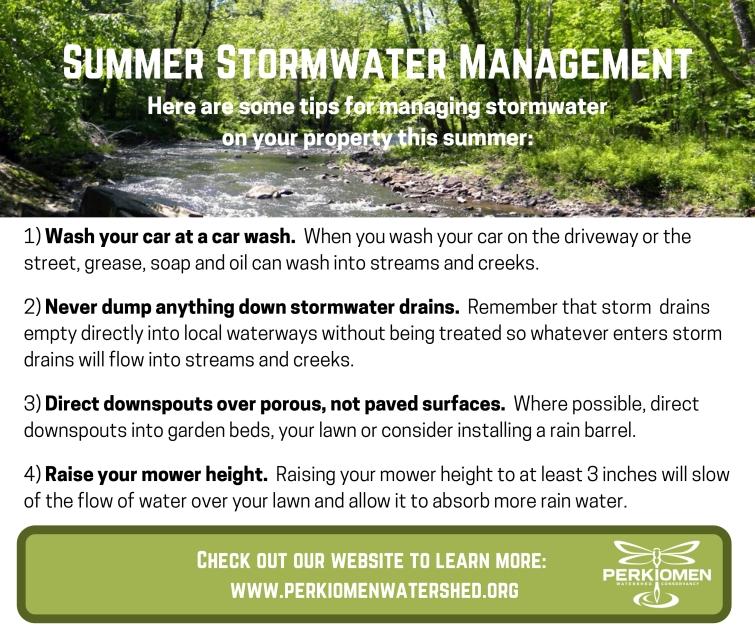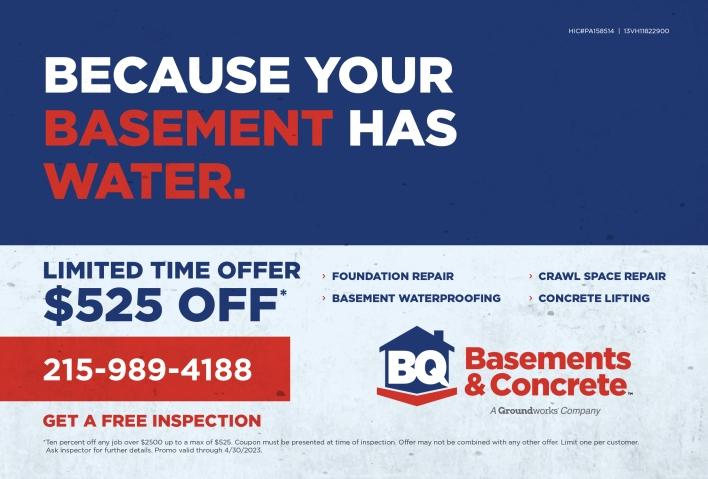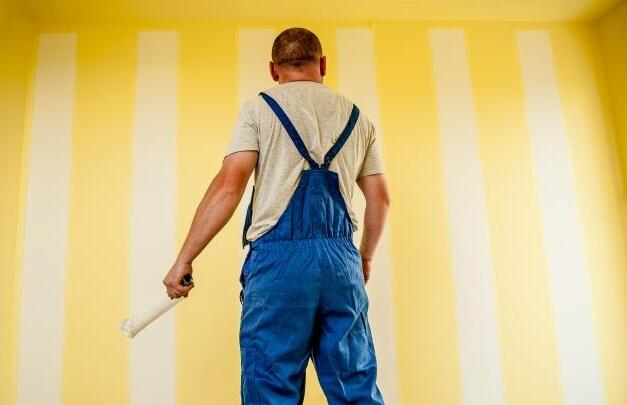
5 minute read
ENVIRONMENTAL ADVISORY COUNCIL
What's All The Hype With Native Plants?
We've been hearing a lot about them but why do we need native plants? What's wrong with ornamental and non-native species? To sum it up — native plants are critical for a healthy environment.
Advertisement
Native plants are plants that grow naturally in a particular region and provide necessary food and shelter for native insects, birds, and other animals. Additionally, they provide pollen for pollinators such as bees and butterflies. You can make a huge difference just by adding a few natives to your garden. Bird Town PA reports that “our native tree, White Oak, supports over 500 caterpillar species compared to the non-native Gingko Tree, which supports only 5 species. This is significant as it takes over 6000 caterpillars to raise one brood of chickadees!”
Invasive plants can take over a habitat and outcompete everything, creating a monoculture. Ornamental plants and non- native plants, while not invasive, do not provide food source or adequate habitat to support wildlife, pollinators, and insects. These plants tend to be deer resistant and therefore put even more pressure on native plants. You may think of non-natives as the junk food for ecosystems, they provide little value and take up space for healthy plants.
Planting native plants and trees is also a great way to manage stormwater issues. Alliance for the Chesapeake Bay states that native plants usually have deeper and more extensive root systems that prevent erosion and provide extra filtration and since natives also require little to no fertilizer or chemical applicants, they are also superior for improving water quality

Before purchasing native plants you will need to assess what type/moisture of soil you have in your yard and how much sunlight it receives. Plan a visit to a local native plant nursery or conservancy (ex: Perkiomen Watershed Conservancy, Bowman's Hill Wildflower Preserve,
Jenkins Arboretum, Schuylkill Nature Center, Natural Lands Trust, Yellow Springs Nursery, Behmerwald Nursery) and learn about what native plants would do best in your yard.
The Lower Providence Environmental Advisory Council invites you to reach out via contact form on the Township website or join a meeting on the third Monday of every month at 7:00 p.m. to learn more about what is being worked on and what ways you can volunteer in the Township!

What are the Benefits of a Sewer System?
The main function of a sanitary sewer system is to protect water quality and public health. A series of underground pipes and manholes, pumping stations, and other accessories convey sewage from homes, businesses, and industries to wastewater treatment plants where it is cleaned and returned to the environment.
health as well which include: o Water Protection - Improved protection of drinking and surface water o Nitrate Control - Improperly treated sewage can also lead to increased nitrates in local water supplies, which is dangerous for infants, pregnant women and those with already compromised immune systems. o Reduced Diseases - Reduced risks to public health from diseases such as hepatitis or dysentery o Reduced Insects - Fewer diseasecarrying mosquitoes and flies.
LATE FEE: If payment is not received by LPTSA by the due date printed on the sewer bill, a 10% penalty is added on the current amount due only. The aggregate amount thereof shall bear interest from the penalty date at the rate of .5 % per month (1.5% quarterly). Failure to receive your bill does not relieve you of your obligation to pay, nor waive customer of paying penalty.
DELINQUENCY: Delinquent sewer bills will result in water shut off and/or property liens. Water turn off/on and property liens will result in additional fees charged to your account.
Here is how they work…when you flush the toilet or wash dishes in the kitchen sink, that water is carried away from your home (or business) through a four-inch pipe to a six-inch pipe that meets the sewer main in the street. The pipes that take waste from your home (or business) to the sewer main are only large enough to remove toilet paper and human waste. From there it continues until it reaches the wastewater treatment plant where the wastewater is treated to remove pollutants before it returns to the environment. When non-biodegradable items are flushed, such as sanitary wipes*, oils, fats, grease, paint, and other items should never be flushed down your toilet or poured down your drain because they can harden inside household pipes and public sewers restricting the flow of wastewater, leading to blockages, overflows, sewage back-ups and damage to our pump stations and with processes at the plant.
Usually, sanitary sewers use gravity to carry the wastewater away. However, in lowlying areas pumps are sometimes used when the wastewater needs to reach an area that is at a higher elevation.
Sanitary sewers are accessed via manholes for routine maintenance and repair. Cleanouts located on your property provide access to the part of the sanitary sewer that goes from your home to the sewer main in the street. If there is a blockage in this pipe it can be accessed via the cleanout. A cleanout is a vertical pipe that extends from the service line to the ground surface to provide access to the service line for cleaning, inspection, and maintenance.
Being connected to the sanitary sewer benefits not only property owners but improves the environmental and public
*Flushing away “unflushables” adds to the cost of operating and maintaining your sewers and the wastewater treatment plant. “Disposable” doesn't mean flushable. Disposable means you should bag it and trash it... don't flush it! Most baby wipes and adult wipes are not flushable. This information is usually written in tiny letters somewhere on the package. Even if the phrase “flushable” or “safe to flush” is on the package, it may not be flushable. These “unflushable” and many “flushable” wipes do not fall apart in water like toilet paper. The wipes get tangled in the sewage with other wipes and debris, resulting in sewer clogs and expensive problems for your collection system/WWTP
ASSISTANCE PROGRAM: The Pennsylvania Housing Assistance Fund (PAHAF) provides financial assistance to eligible homeowners to help cover wastewater charges. Please visit their website https://pahaf.org/ or call 888-987-2423 for more information and to apply.
PAPERLESS BILLING: Get your bill sooner! Sign up toreceive your monthly sewer bill by email. If you haven't already signed up go to http://www.lowerprovidence.org/ sewer.htm to complete the form. Past due and/or shut off notices will not be emailed. They will be mailed to you in paper form. Emailed bill(s) will come from “sewerbill@lptsa.org”.
CONTACT US:
The Sewer Authority wants our customers to know that our employees are always available during regular business hours by calling 610-539-6161 to address emergency situations. After hours emergencies, please call 1-888-831-7818.
If you should have a backup in your outside line, contact us so that we can verify that it is not being caused by a blockage in our main line before you call your plumber.
Sewer Line Replacement Work
The Sewer Authority consistently does maintenance work on its sewer lines and is continuing its efforts to remove I/I* from the Sanitary Sewer System. We will be replacing the main lines and manholes in the street and the laterals from the main to the roadway right of way. Sewer replacements are costly and time-consuming projects but are necessary to extend the life of our sewers and ensure they continue to serve Lower Providence Township for generations to come. The most recent Sewer Authority project that was done has proven to be very successful in removing I/I* from the Sanitary Sewer. The work for the next project began mid-December and will continue through 2023 & will include the following streets in no particular order:
Intersection of Midland and Regency
Cul-de-sac of Regency in front of 144, 148, 152, 153, 156, 160, 164, 165, 168, and 169
Right-of way between 168 and 169 Regency
Right-of-way between Regency and Sunnyside behind 165, 169, and S. Midland 186 and 187
Right-of-way next to 668 Sunnyside
All of Farmhouse
Right-of-way from Hillside and Second Street to West Mount Kirk between 54 & 70 Right-of-way off Linnet behind 605 & 609 and behind South Park Avenue 608, 612 & 616
*Inflow and infiltration (I/I) is clear water that seeps into the sewer system from a variety of sources. Infiltration occurs when groundwater seeps into sewer pipes through cracks, leaky pipe joints and/or deteriorated manholes may cause sewage flows to exceed design capacity.






